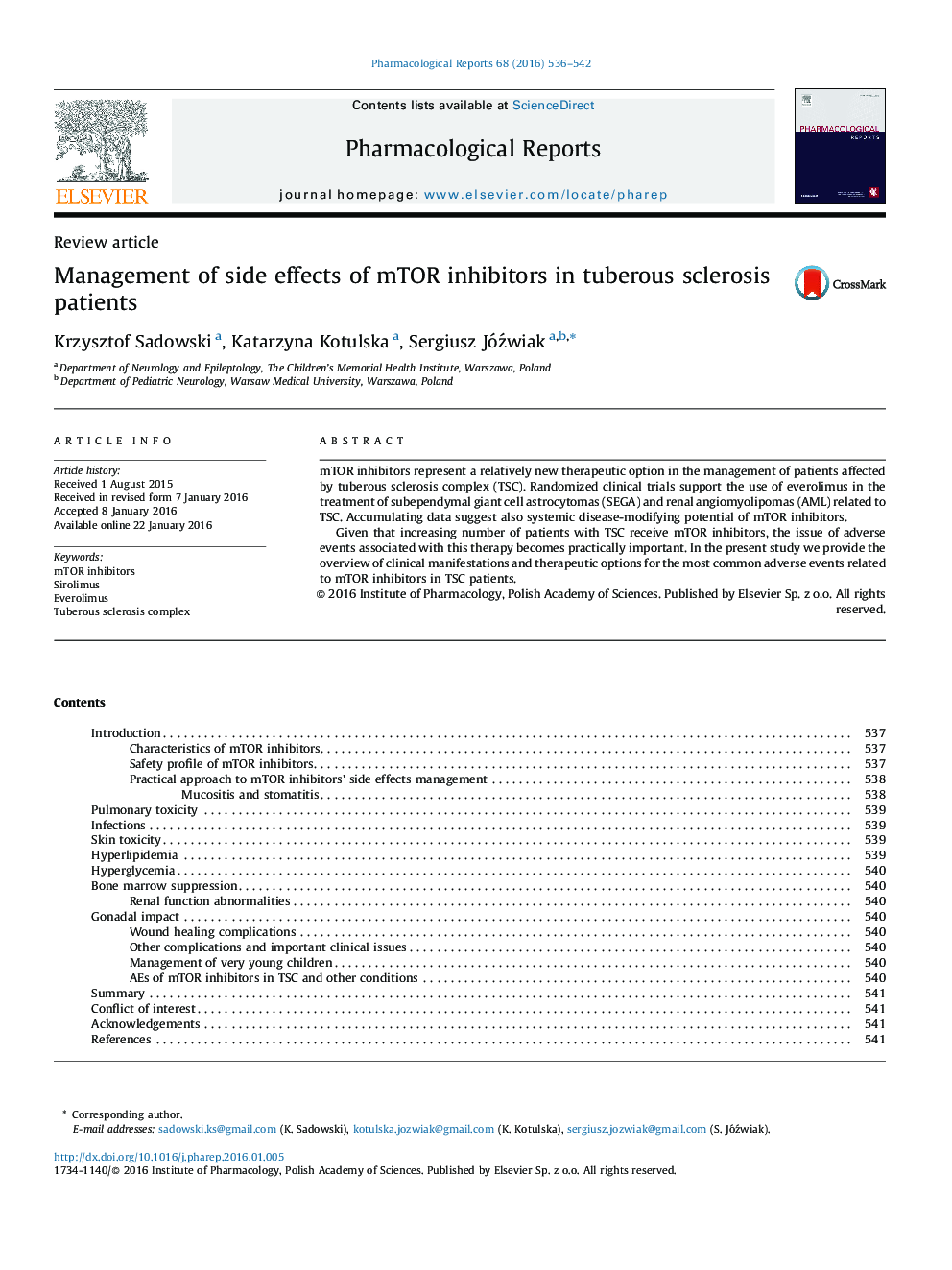| Article ID | Journal | Published Year | Pages | File Type |
|---|---|---|---|---|
| 2010648 | Pharmacological Reports | 2016 | 7 Pages |
Abstract
mTOR inhibitors represent a relatively new therapeutic option in the management of patients affected by tuberous sclerosis complex (TSC). Randomized clinical trials support the use of everolimus in the treatment of subependymal giant cell astrocytomas (SEGA) and renal angiomyolipomas (AML) related to TSC. Accumulating data suggest also systemic disease-modifying potential of mTOR inhibitors.Given that increasing number of patients with TSC receive mTOR inhibitors, the issue of adverse events associated with this therapy becomes practically important. In the present study we provide the overview of clinical manifestations and therapeutic options for the most common adverse events related to mTOR inhibitors in TSC patients.
Related Topics
Life Sciences
Biochemistry, Genetics and Molecular Biology
Biochemistry
Authors
Krzysztof Sadowski, Katarzyna Kotulska, Sergiusz Jóźwiak,
